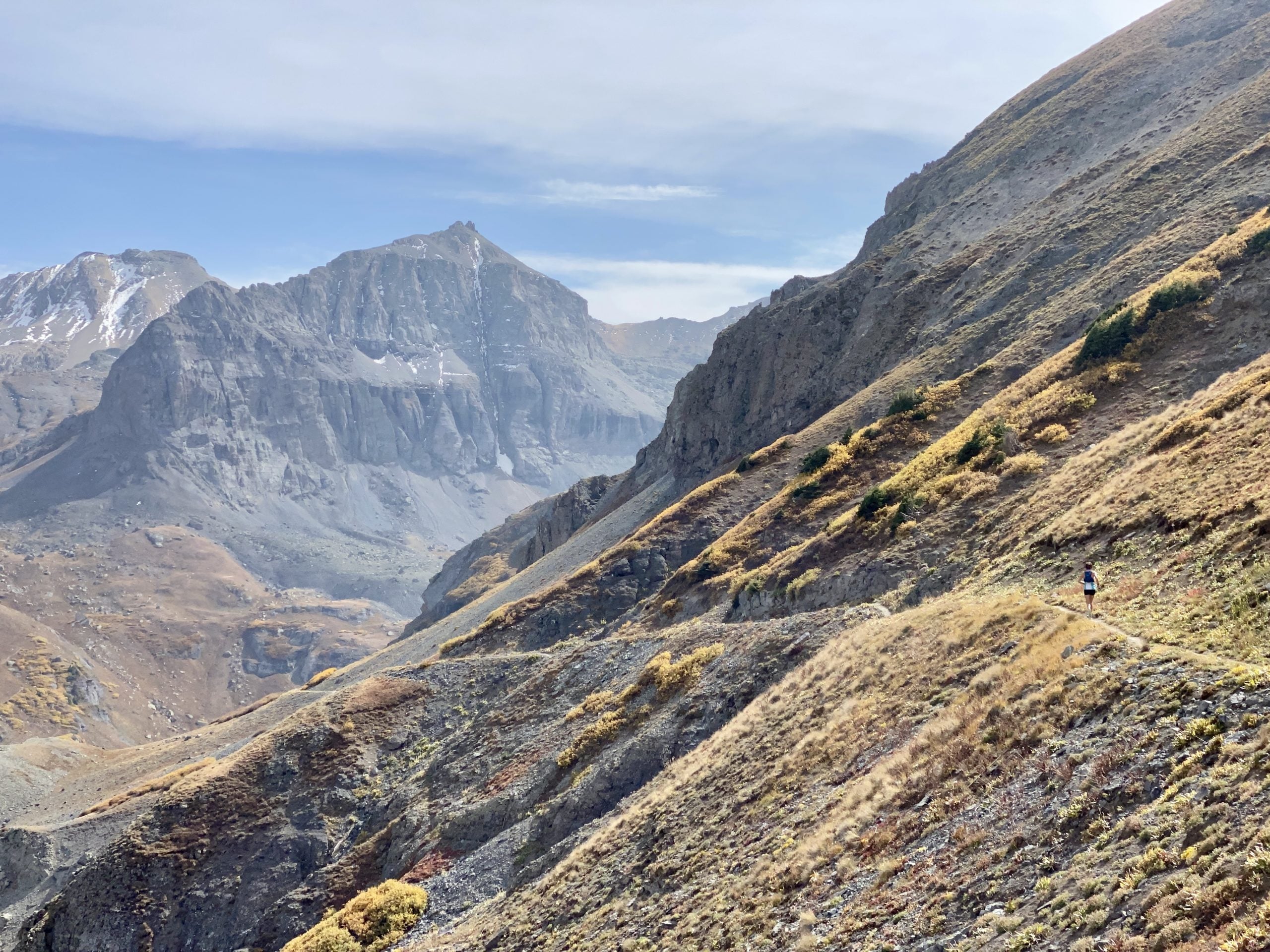Climate Heroes And Hypocrites

Whenever I write a climate piece for Trail Runner, there is inevitable and predictable feedback.
“How can you complain about climate change when trail runners who drive or fly to races are part of the problem?” or “How can you critique the gear-industrial complex if you buy and wear shoes”?
Human beings are causing a global temperature increase, largely driven by burning fossil fuels. The global average temperature is about 1˚ C (1.9˚F) hotter than pre-industrial levels according to the Global Temperature Index, established by NASA. According to the 2018 IPCC Report, scientists confirmed that at the current rate of warming, the world could become 1.5˚C warmer as soon as 2030. A world that’s 1.5 ˚ C warmer would be virtually unrecognizable to trail runners, and pretty much all human beings.
Digital finger-pointing is one of the most evergreen excuses for avoiding challenging and nuanced conversations around climate: you’re a hypocrite. This is one of the most pernicious traps of climate inaction; that you must be perfect to do anything. The unfortunate truth is that none of us is perfect, and we all desperately need to do something.
It’s true. I do not live in a way that fully embodies my climate values. From the moment I wake up in the morning, almost everything I do burns coal, gas and oil. How can I complain about climate change while I drive a car/turn on lights/eat cheese sometimes/wear shoes?
Here, I’m tempted to delineate all the actions I take to limit my consumption. Whether it’s walking or biking to work or avoiding meat, I try to minimize my footprint whenever possible. I try not to fool myself into thinking that it’s helping all that much. My bike still required fossil fuels to produce, and I’m still not sure how bad, exactly, almond milk is for the environment (it’s not great).
But, the need to demonstrate some perceived climate action perfection just falls into the ideological traps that perpetuate climate inaction. We’re embedded in a world that fossil fuel has made, and I’m certainly using far more than a responsible share of the world’s most vital stuff, no matter what I do to mitigate it.
The truth is that nothing we do as trail runners really matters if we don’t focus on advocating for systemic change. Whether that’s energy policy, food and agriculture policy or better waste management. Rather than judging others or feeling guilty for driving to races, we should use that energy protecting and regulating public lands so that those fossil fuels never leave the ground in the first place. Redirecting angst from how individuals consume fossil fuels and towards the policy that regulates the fossil fuel industry is energy well spent. Overemphasizing individual power downplays the necessity of collective action.
The truth is that nothing we do as trail runners really matters if we don’t focus on advocating for systemic change.
This is an intentional and powerful political tool that takes the onus off entities that are actually responsible for the lion’s share of climate impacts and convinces me that I should feel guilty for not biking to the trailhead. If I worked in the fossil fuel industry, I’d definitely want people fighting over the effectiveness of paper straws rather than working together to hold me accountable for criminal negligence, or crafting effective, science-based regulations.
It is less important that I choose not to eat meat than it is for me to advocate for policy that pushes for affordable and sustainable meat alternatives while eliminating policies that artificially lower the cost of meat through subsidies. It’s less important that I bike to work than it is that I push the officials that represent me to adequately regulate the fossil fuel industry. What I’m able to do individually is just a drop in the bucket. What we need to do is change the bucket.
Perfection isn’t, and never should be the goal. Because under our current social and economic systems, it’s just not possible. 71 percent of greenhouse gas emissions in the past 20 years came from just 100 companies. Squabbling over the impact of shoes or gel wrappers obfuscates the real work that needs to be done. Though yes, you should also definitely recycle your gel wrappers, and here’s how.
What I’m able to do individually is just a drop in the bucket. What we need to do is change the bucket.
Driving or wearing shoes or eating cheese doesn’t make me a hypocrite. It makes me a normal, flawed person living in a broken system that displaces its own culpability by redirecting guilt towards individuals with less power. If those of us who are trying, really and honestly hard are still fully meshed in a fossil fuel system, that makes clear that what needs to change aren’t so much the individuals, but the system.
If the system was functional, it wouldn’t require a nearly saint-like devotion to fossil-fuel aversion. The fact that it is so challenging to do anything isn’t a bug in the system, it’s a feature.
Individual action alone, though important, will not be enough to reserve course in the climate crisis. We need trail runners to advocate for effective, evidence-based collective action and public policy. Then, we could all more easily live in a way that doesn’t make it feel like your brain is going to melt each time you buy a pair of shoes or go to the grocery store.
Climate action doesn’t need a few more saints. What it needs is a lot more trail runners willing to do what they can, while making mistakes and trying to do better in a system that works for, and not against them.
Zoë Rom is Associate Editor at Trail Runner and has a master’s degree in Environmental Journalism from the University of Colorado Boulder. She is the producer and host of the DNF podcast.